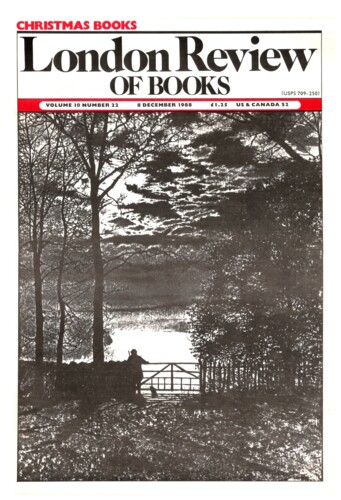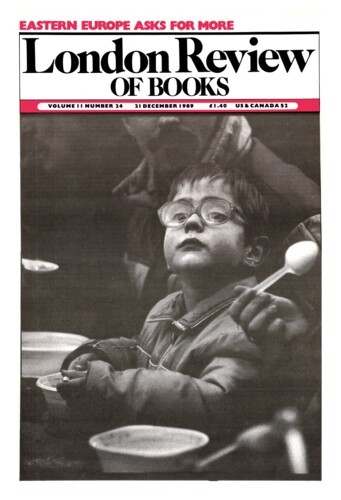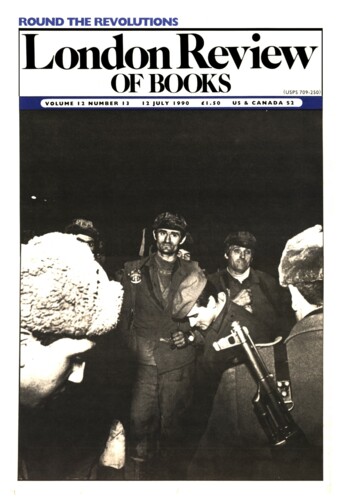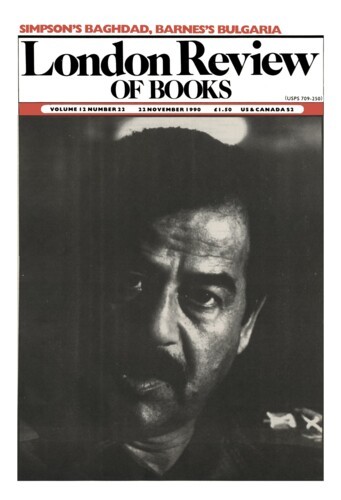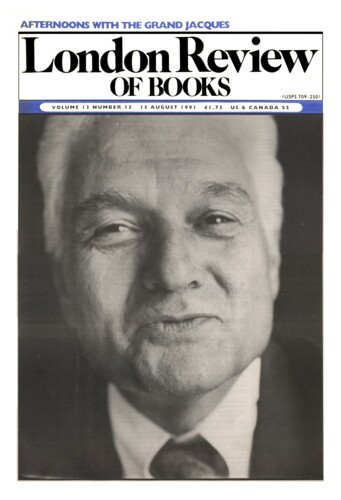Alcohology
Victor Mallet, 8 December 1988
In Angola, where the local currency is all but worthless, people use cans of imported beer as a means of exchange: a very heavy sort of money, but at least you can buy bananas and fish with it. In Zambia, some people pour a little beer onto the ground in the doorways of their huts to placate the ancestors. The supplicant says: ‘Be cool, as water is cool. Do not trouble the children. Let us all prosper. Here is your beer.’
